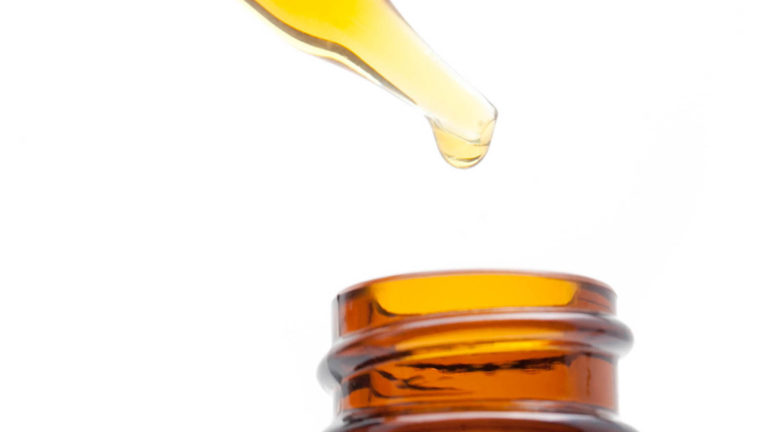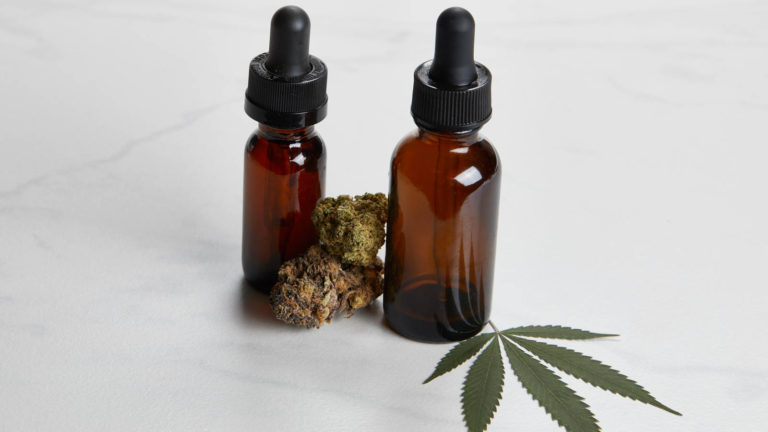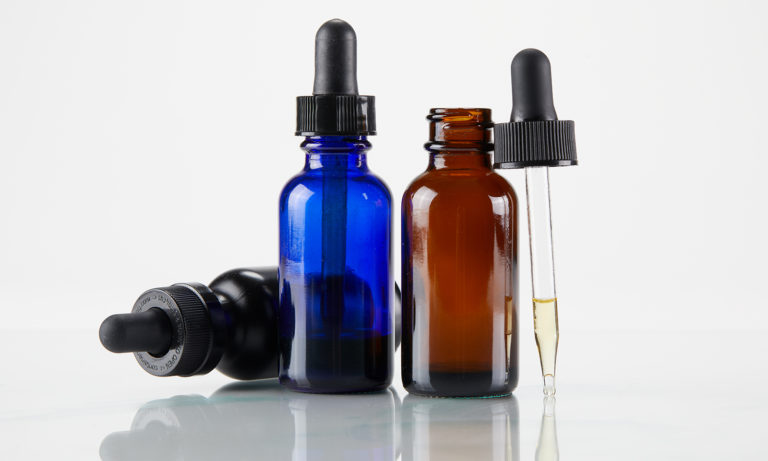The production and processing of industrial hemp was legalized in Rhode Island for commercial purposes on January 1, 2017. In July 2019, Rhode Island updated the Industrial Hemp Growth Act to explicitly authorize the sale of hemp-derived consumable CBD products containing .3% THC or less. CBD consumable products include concentrates, extracts, and CBD-infused foods.
Hemp-derived CBD products can be sold in retail and commercially traded. The new law requires handlers, distributors, and retailers to be licensed, and prohibits the sale of consumable CBD products to those under the age of 21.
Marijuana-derived CBD is legal in Rhode Island for eligible patients under the medical marijuana program, which has been in place since 2006, when the Legislature overrode a veto from Governor Don Carcieri to legalize medical marijuana, making Rhode Island the eleventh state to do so.
What is CBD?
CBD stands for cannabidiol. It is a non-intoxicating cannabinoid found in cannabis. Cannabidiol is the second-most abundant cannabinoid in the plant after tetrahydrocannabinol (THC). It has many potential therapeutic benefits, including anti-inflammatory, analgesic, anti-anxiety, and seizure-suppressant properties. CBD can be sourced from both marijuana and hemp plants.
 Photo by: Gina Coleman/Weedmaps
Photo by: Gina Coleman/WeedmapsImage lightbox

Combine THC and CBD to fully employ the entourage effect.
Why is CBD sometimes illegal?
All types of cannabis, including hemp strains that don't produce enough THC to cause intoxication, were considered illegal under the Federal Controlled Substances Act of 1970. The law categorized all cannabis as Schedule I, which defined the plant as a highly addictive substance with a high potential for abuse and no accepted medical use.
The Hemp Farming Act of 2018 re-classified hemp as an agricultural commodity and made its cultivation federally legal. Further, the act removed some forms of cannabis from Schedule I status by creating a legal distinction between hemp and marijuana. Hemp is cannabis with less than .3% THC, and marijuana refers to cannabis with more than .3% THC. This distinction in federal law effectively legalized CBD that is derived from cannabis with less than .3% THC, as long as it's been cultivated according to federal and state regulations.
The 2018 Hemp Farming Bill legislation does not mean that CBD derived from hemp is universally legal throughout the United States. According to the Farm Bill, the Food and Drug Administration (FDA) has the power to regulate CBD product labeling, including therapeutic claims and the use of CBD as a food additive. The FDA has already maintained that even hemp-derived CBD may not legally be added to food and beverages, or marketed as a dietary supplement. Although the organization has begun to re-evaluate some of these stances on legal CBD products, the FDA has not revised its regulations. The agency also has been strict in its stance against any labeling that could be perceived as a medical claim about CBD products.
In addition to federal regulation of CBD, the Farm Bill also gave states the option to regulate and prohibit the cultivation and commerce of CBD. States may also regulate CBD in food, beverages, dietary supplements, and cosmetic products independently, even before the FDA finalizes its policies.
Rhode Island CBD laws
Rhode Island, like many states, created a hemp production pilot program in the wake of the 2014 Farm Bill. The Hemp Growth Act, which took effect on January 1, 2017, distinguished marijuana and hemp by THC content. Hemp must contain .3% THC or less by weight.
 Photo by: Gina Coleman/Weedmaps
Photo by: Gina Coleman/WeedmapsImage lightbox

In July 2019, Rhode Island expanded its hemp program, explicitly authorizing the sale of hemp-derived consumable CBD products. These products include concentrates, extracts, and CBD-infused foods. Hemp CBD products can be sold at retail and commercially traded in licensed retail stores. The new law requires handlers, distributors, and retailers to be licensed and prohibits the sale of consumable CBD products to those under 21 years of age.
The Rhode Island Department of Business Regulation (DBR) has additional specific requirements regarding the sale of CBD in food and beverages. Any hemp-derived product intended for consumption must be handled and distributed following state and local food regulations. The DBR is currently creating further regulations for retailers.
CBD products must be packaged in a food-safe manner that includes seed-to-sale tracking information and a warning that the product is not FDA approved. Labels must also explain the extraction method, solvents used, and list product weight along with the quantity of THC, CBD, and other compounds from the test results. Following FDA guidelines, Rhode Island law states that CBD packaging can't make therapeutic claims.
CBD products derived from marijuana are legal, but currently only available to eligible medical marijuana patients.
Licensing requirements for CBD
The Industrial Hemp Growth Act stipulates that all growers, handlers, retailers, and distributors of hemp must receive a hemp license from the Rhode Island Department of Business Regulation (DBR). The DBR is responsible for overseeing licensing, implementing a seed-to-sale tracking system, and regulating seed certification methods. Background checks are performed following the application for a license. License applications are available on the DBR website under the Industrial Hemp section.
Unlike some states, Rhode Island issues dual licenses for growers and handlers rather than requiring a separate license and fee for each role. The legislation also requires the DBR to inspect and test hemp crops. Crops that test above .3% THC content will be destroyed at the expense of the licensee. The licensee may face prosecution or have their license may be revoked.
Rhode Island CBD possession limits
There are no CBD possession limits on hemp-derived CBD products in Rhode Island at this time.
 Photo by: Gina Coleman/Weedmaps
Photo by: Gina Coleman/WeedmapsImage lightbox

Qualified medical marijuana patients are permitted two and a half ounces of usable cannabis every fifteen days. There are no specific penalties expressed for the possession of cannabis-derived CBD products. Individuals who are not registered with the state's medical marijuana program who are found in possession of less than one ounce of cannabis may be charged with a civil violation and a maximum fine of $150.
Individuals found with one ounce to one kilogram of cannabis may be charged with a misdemeanor and may receive up to one year in prison with a maximum fine of $500.
Where to buy CBD in Rhode Island
Rhode Island has several CBD-specific storefronts where hemp-derived CBD can be purchased. Local pharmacies, grocers, and health food stores may also sell CBD products. More locations will likely carry CBD products as hemp production in the state ramps up.
CBD derived from marijuana is only available from a state-licensed dispensary.
Consumers can also shop from a wide variety of online outlets for CBD products, read consumer reviews, and ship purchases to their homes. Online shopping also offers the ability to gather detailed information about each product, compare different products and product types, and compare prices to find the best product for the best price. CBD brands also often have their own ecommerce shop, allowing you to purchase your desired CBD products straight from the source.
How to read CBD labels and packaging
The 2018 Farm Bill shifted oversight from the U.S. Department of Justice (DOJ) to the U.S. Food and Drug Administration (FDA). As the FDA begins to develop new regulations for CBD products, buyers must exercise caution. Still, the agency warns that regulations in flux still require companies to make legitimate claims on their labels.
Most reputable CBD producers typically include the following information on their CBD product labels:
- Amount of active CBD per serving.
- Supplement Fact panel, including other ingredients.
- Net weight.
- Manufacturer or distributor name.
- Suggested use.
- Full-spectrum, broad-spectrum, or isolate.
- Batch or date code.
One of the most important things to pay attention to is whether a CBD product is full-spectrum, broad-spectrum, or isolate.
Full-spectrum means that the CBD has been extracted from a hemp plant along with all other cannabinoids and terpenes, including whatever trace amounts of THC the plant may have produced. Consuming full-spectrum CBD may yield better results thanks to the entourage effect, a phenomenon in which the mixture of cannabinoids and terpenes work together to produce a more pleasant experience.
Broad-spectrum means that the product contains CBD and terpenes, but has undergone additional processes to strip out any THC.
Finally, isolate is a product that has gone through more intensive processing to remove all compounds except for CBD. Consuming isolate may produce different effects than full-spectrum or broad-spectrum CBD, as these products do not produce the entourage effect.

